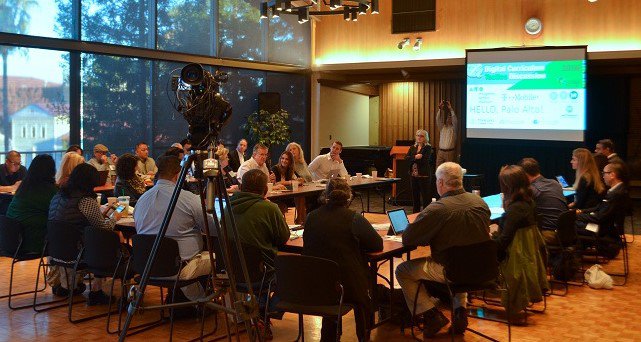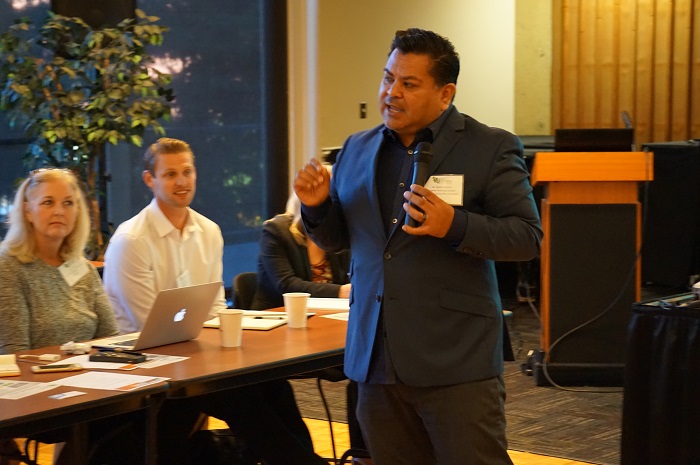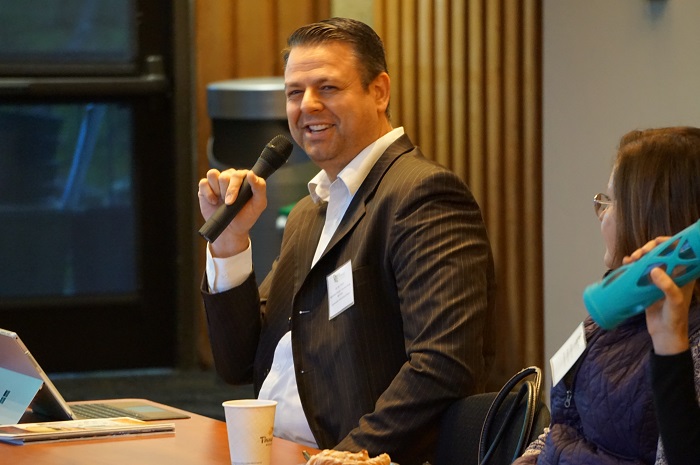The Stanford campus was the site of the regional Palo Alto Digital Curriculum Tactics Discussion in early November. As the sun rose and the misty bay area fog burned away executives representing schools and districts across the Bay Area arrived to collaborate and hear from the Learning Counsel on the state of the education market and successful ways to confront the chaos of change as classrooms go digital.
LeiLani Cauthen, CEO and Publisher at the Learning Counsel set the pace for the day, sharing that teachers and administrators must begin to understand the digital things within education, their increasing sophistication and characteristics internal to software and devices. “To cope, and lead, in this shift,” she stated, “educators must take on a new mindset, and where they have, they are winning. It’s going to look more like business and marketing concepts and techniques than they've been used to. They are now competing with a consumer driven market. Parents can buy their children an education online if they want." She asked the executives in the room, "How are you competing—and leading?"
The room included many teams who attended together to be able to collaborate and ensure all stayed on the same page as they gathered information for their transition. Teams included Palo Alto Unified School District, Williams Unified, Pleasant Valley, Fremont High School District, Oak Grove School District, Campbell Union, Lammersville Unified as well as representatives from the Santa Clara County Office of Education and Casa Pacifica Centers for Children and Families.
Photo Gallery: Palo Alto Discussion
Presentations throughout the day from Palo Alto area school districts shared their stories, successes, failures and what they’ve learned through these last few years of building up their network infrastructure and retraining teachers to operate technology-centered classrooms. Several executives spoke about the concerns and difficulties their teachers are talking to them about. It seemed to be a common crux of where the region stands – the shift in pedagogy.
Academy Technology Specialist from the Santa Clara County Office of Education, Martin Cisneros, both entertained and enlightened the group with his personal anecdote on “going digital.” While his talk contained stories of the Apple II and the first computer labs, it made the point that today we have teachers in the dark and resisting change and they must be supported and given the professional development to make the leap.
Another presenter during the afternoon was Mr. Ben Fobert, former School Board Member and current High School Principal of Mountain House High. His story is different than most, working with a new school that was built from the ground up “digitally connected.”
“I’ve been to a lot of conferences and a lot of presentations in recent years and I see too many things going on in isolation,” stated Fobert. “We need more effective time for collaboration and sharing such as what we have here with the Learning Counsel discussion day. A systems-wide approach is not really happening on a large scale and we need to talk about that. I get the feeling that leaders are hitting this wall right now. Leaders—all of us—are mid solving how we integrate technology in a way that truly changes instruction in the classroom.”
From the very beginning at Mountain House, they looked at sustainability as they went digital. “We wanted to make sure when we created an environment that was textbookless and integrated with technology in the classroom that we were able to change the way we think about financing schools. You have to stop thinking about spending money in certain areas and really, it’s a paradigm shift in spending.”
Fobert pointed out that they looked at it in a systemic way. “If we were going to do this, what kinds of things need to be in place. What kinds of ideas must be in place? How do we get buy-in from teachers, how do we get buy-in from community members and students? And so, looking at it in that way and including those people in on making that plan was important to create a sustainable way to be able to purchase the devices that we needed, the technology that we needed, the content that we needed.”
The Learning Counsel looks forward to seeing our friends in Palo Alto again next year and hearing about your successes and outcomes as we traverse the new education landscape.












